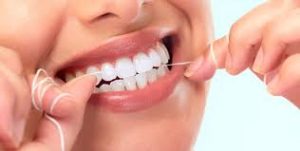Expert Dental Hygiene Advice
Good oral hygiene is important for both your social wellbeing and your health. Getting a reputation for bad breath or unflattering teeth can seriously dent your social life. Even more importantly, poor dental health practices can lead to complex issues including dental cavities, gum diseases, root canals, and in some cases you could even lose your teeth.
Proper dental health practices should be learned as early in life as possible. From a young age, children should be taught the proper procedures on how to brush and floss their teeth, and which foodstuffs they should be careful with if they want to prevent the degradation of their oral health.
The following are the most important guidelines that you need to abide by in order to have great dental health.
Daily dental health practices
The most basic oral health practice is to brush your teeth every day. The importance of brushing your teeth cannot be overstated. The standard practice is to brush at least twice daily. It is recommended that you brush your teeth before going to bed to prevent the food residues in your mouth from rotting overnight. You should also brush your teeth when you wake up, or as part of your morning routine.
When selecting your toothpaste, ensure that you pick a brand that contains fluoride. There are many different brands of toothpaste, and you are free to pick whichever flavor you prefer. There has been some controversy surrounding the use of fluoride in toothpaste, but scientific evidence shows that it helps prevent tooth decay.
You should select a toothbrush that has a small to medium head with soft nylon bristles with rounded tips. Toothbrushes with tough bristles can cause gum bleeding. It is also important to remember to change your toothbrush at least every three months.
Brushing teeth alone is not enough. A lot of food particles are often lodged between the teeth, and they cannot be removed with regular toothbrushes. To take care of this problem, use dental floss or other between-the-teeth cleaners at least once every day.

How to minimize dental cavities
Brushing and flossing with fluoride toothpaste can go a long way in preventing dental cavities. However, these practices are not enough. Dental Cavities are caused by tooth-decaying bacteria, and the type of food you consume can determine whether or not colonies of this bacteria will grow in your mouth.
To minimize dental cavities, you should avoid sugary foods and beverages. Plaque is a film of bacteria that forms in the mouth and on teeth. When you consume sugary foods and drinks, the residue in your mouth becomes a source of food for the bacteria. The bacteria breaks down the food residue and produces an acid that corrodes the enamel, leaving behind cavity holes. To prevent this, rinse your mouth every time you drink a sugary beverage, and brush your teeth afterward if you absolutely have to eat candy.
Drinking tap water can also prevent cavities. Across the world, water companies add fluoride to tap water for the explicit purpose of preventing tooth decay in the general population. If you only drink bottled water, you may not be getting enough fluoride.
Occasional antibacterial treatments may be necessary to prevent dental cavities. If you are particularly prone to tooth decay, a dentist could recommend an antibacterial treatment to take care of the plaque on your teeth.
Drs. James And Samuel Owens Dentistry
If you are looking for Broken Arrow Dentist in your area, then James and Sam are a great choice. Drs. James and Samuel Owens have been offering dental services in the Tulsa and Broken Arrow area for decades. They are extremely experienced in helping people get great dental health. Contact them today by going to their website or by searching dentist in Broken Arrow.
How to reduce the chances of needing a root canal
Root canal treatment is necessary to save teeth that are badly decayed or infected. The term root canal refers to the inner layers of the tooth, which contains pulp and nerves. These inner layers of the tooth are usually damaged when there is deep decay, a crack or a chip on the tooth.
To prevent root canals that result from deep decay of the tooth, the good oral hygiene practices discussed must be carried out consistently. You should also avoid repeated dental procedures such as fillings on the same tooth if possible. Repeated procedures on a tooth can lead to the infection of the internal layers which makes root canal surgery necessary.
To prevent root canals that result from cracking and chipping of teeth, you should wear a mouth guard every time you play a contact sport.
It is important to remember to make frequent visits to your dentist. Scheduled cleaning and checkup sessions can help you catch onto a problem before it becomes serious.
Other Resources: Their Dentist Vimeo Page